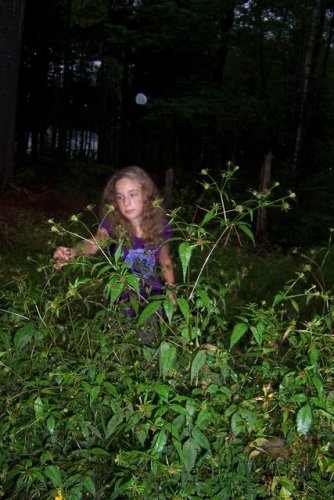A few days ago I was hiking through the woods with my 10-year-old granddaughter, Julia, who lives in Maine. She was skipping along on the trail ahead of me and suddenly she stopped in her tracks. When I caught up with her, she said, “Look at all these beggar lice!” On her jacket were small black seed pods that had become attached to her jacket, and she began to pick them off, one by one.
She then retraced her steps a few paces and showed me the plant she had brushed up against when she was bouncing down the trail. The plant, which was as tall as she, is a biden, referring to the two teeth on each seed pod.
Kevin Wall, education director for the New Hampshire Audubon Society, told me that bidens come in several varieties, all sharing the common names of beggar lice or stick-tights. Their flowers are inconspicuous and are hardly worth noticing. But when the barbed seeds develop, you cannot ignore them because they will adhere to any passing person or animal which will become an agent in dispersing the seeds. These plants are ultimate hitchhikers that really know how to get around.
Someone's overworked imagination has also named these plants devil's bootjack, pitchfork weed and old-ladies clothes-pin. The seeds have vicious grappling hooks that use an innocent passerby for a quick get away from the parent plant.
Writing about the plant, Thoreau said, “The bidens on the edge of a pool prophesy the coming of the traveler, brute or human, that will transport their seeds on his coat.”
In “How to Know Wild Flowers,” Mrs. William Starr Dana wrote, “If one were describing attractive wild flowers, the stick-tight would certainly be omitted, but the small barbed seed-vessels so cleverly fulfill their destiny in making one's clothing a means of conveyance to fresh woods and pastures new.”
What traveler, “brute or human,” brought the beggar-lice plant to this spot along the trail where my granddaughter and I were hiking is anyone's guess. As I watched Julia meticulously pick off the seeds from her jacket, she was merely getting rid of them. But in the grand scheme of nature, she was dropping the seeds in new territory to produce more beggar lice plants whose seeds will be carried by other hikers or animals in the next leg of their hitchhiking journey across the face of the earth.









